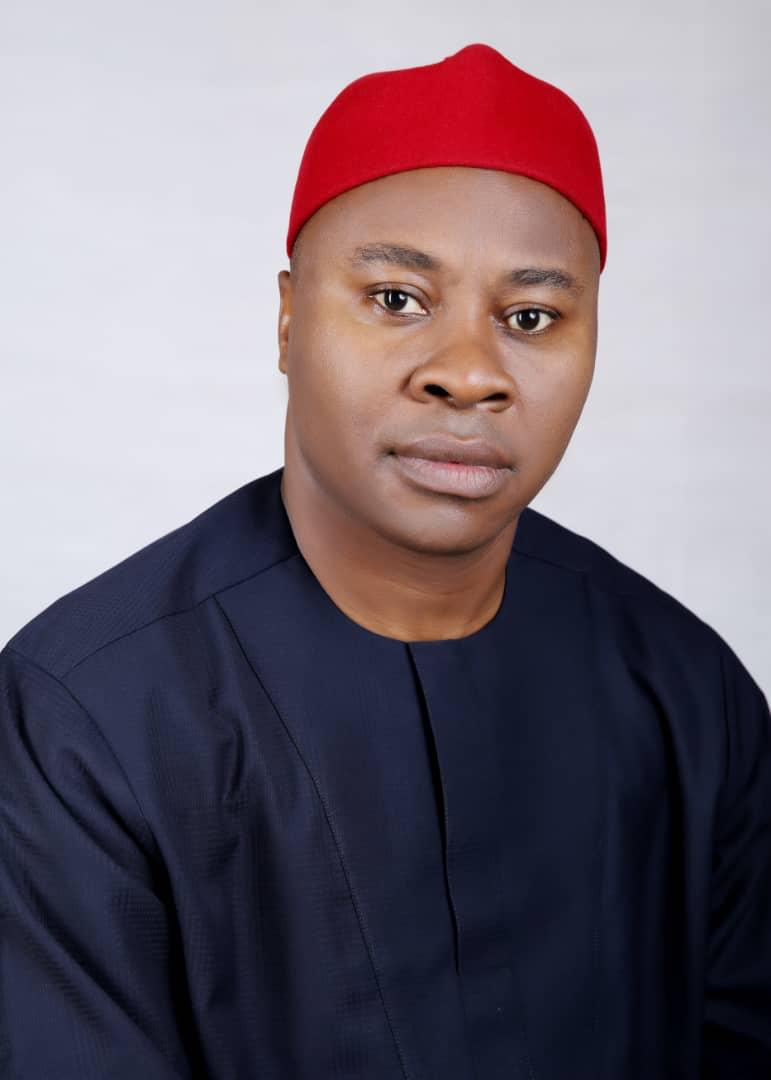News
Gov Otti warned against media attack on Ikonne over push for Aba state

A political analyst and researcher based in Abia State, Dr. Ujo Justice, has cautioned Governor Alex Otti to refrain from targeting Prince Paul Ikonne, the former Executive Secretary of the National Agricultural Land Development Authority (NALDA), over his recent advocacy for the creation of Aba State.
Dr. Justice, a known public affairs commentator, described Ikonne’s proposal as “patriotic” and a “legitimate political expression” that reflects long-standing demands for equity and balanced development in the South East region.
Prince Ikonne had earlier lauded Imo State Governor Hope Uzodimma for supporting the creation of Aba State, while criticizing Governor Otti for opposing the initiative.
In response, Otti’s media aide, Ferdinand Ekeoma, issued a statement titled “Aba State Creation: Paul Ikonne Needs Help to Salvage His Hate-ravaged Mind,” in which Ikonne was branded as “hate-ravaged.”
Reacting on Friday, Dr. Justice condemned the tone of the response, describing it as a form of media intimidation aimed at stifling dissent.
“The governor’s statement is not a defence of governance, but an attempt to silence dissent. Resorting to insults, distorting past events, and questioning academic credentials without proof is nothing but intellectual laziness,” he said.
He argued that Ikonne’s intervention was not politically motivated, but rather a courageous stand that many leaders in the region have been hesitant to take.
“Prince Paul Ikonne did not incite division; he illuminated reality. His call for the creation of Aba State was a legitimate political expression rooted in the quest for equity, development, and fair representation — a demand many leaders from the South East, including progressive voices across party lines, have long echoed.”
The renowned analyst decried the derogatory language used by Otti’s media aide, calling it unbefitting of the governor’s office.
“Rather than engage with the merit of his argument, the Governor’s media aide descended into personal insults, calling Ikonne ‘hate-ravaged,’ ‘infantile,’ and ‘clannish.’ Such vile expressions should have no place in public discourse, especially from the office of a sitting governor.”
He further criticized Governor Otti for what he termed a technocratic but insensitive stance on state creation.
“It is on record that Governor Otti, in 2020, wrote against the creation of additional states, citing economic impracticality. While that is a valid intellectual concern, what he fails to admit is the underlying injustice in Nigeria’s current state structure — particularly against the South East which remains the only region with five states. This imbalance directly affects representation, federal appointments, and resource allocation.”
He maintained that Ikonne’s position reflected national interest, not ethnic bias.
“Ikonne’s position was not that of a sectional warrior, but of a nationalist calling for correction of a decades-long injustice. To reduce that to clannishness is either a deliberate misrepresentation or a poor grasp of political history,” he said.
Responding to Ekeoma’s historical allegations against Ikonne, Dr. Justice defended his track record in public service.
“As Commissioner for Lands, Ikonne introduced reforms that streamlined land allocation and usage. As Executive Secretary of NALDA, he led federal agricultural projects that empowered farmers in states across the country, despite limited collaboration from some state governments.”
He added: “The accusation that he ‘neglected Abia’ while serving at NALDA is disingenuous. National appointments require national scope. That Abia did not benefit from NALDA as Ekeoma claimed is a reflection of poor synergy from state actors than any failure on Ikonne’s part.”
Justice also pointed out that Ikonne’s advocacy for Aba’s development predates the current political season.
“Long before it became politically fashionable to pose with potholes for the cameras, Ikonne had spoken passionately about the economic potential of Aba and the need for strategic investment in its people. The current government may be renovating roads and repainting walls, but cosmetic development without political inclusion is not enough. Ikonne simply asked, ‘Where are the Aba indigenes in this government? Where is their voice in this administration?’ That question deserves an answer — not a tantrum.”
Calling for maturity in governance and public discourse, the analyst stated: “As researcher, and proud son of Abia, I can boldly say that this state deserves more than bitter media wars and vendetta-driven communication. It deserves leadership that welcomes criticism, not one that weaponizes press releases to hound political opponents.
“If the current government has any confidence in its performance, it should focus on delivering its promises, not throwing mud at those who dare to speak.”
He lavished praise on Ikonne as a visionary whose political contributions will stand the test of time.
“Prince Paul Ikonne is a visionary, a patriot, and a political bridge-builder. History will remember him for his courage, consistency, and conviction — not for the lies peddled by those threatened by the truth.”
“Let us rise above media mudslinging and return to politics of ideas, vision, and service. Abia is watching,” he added.





















